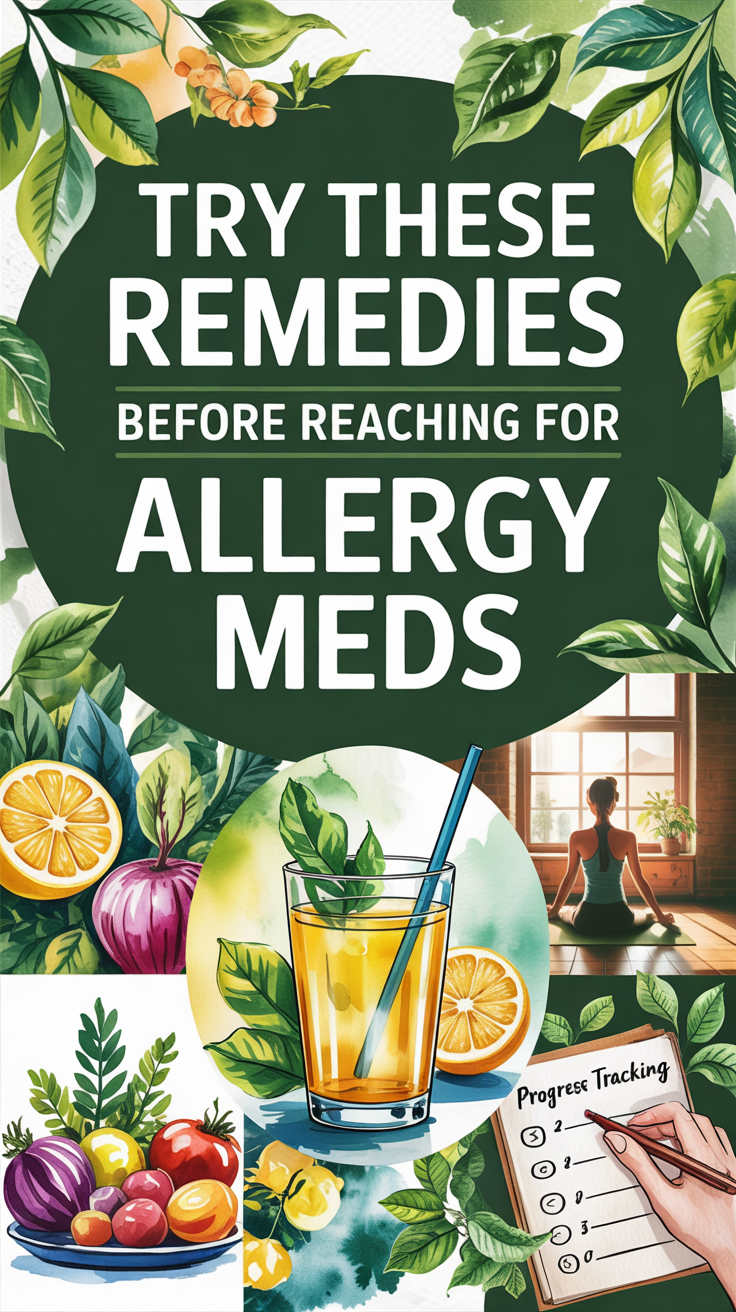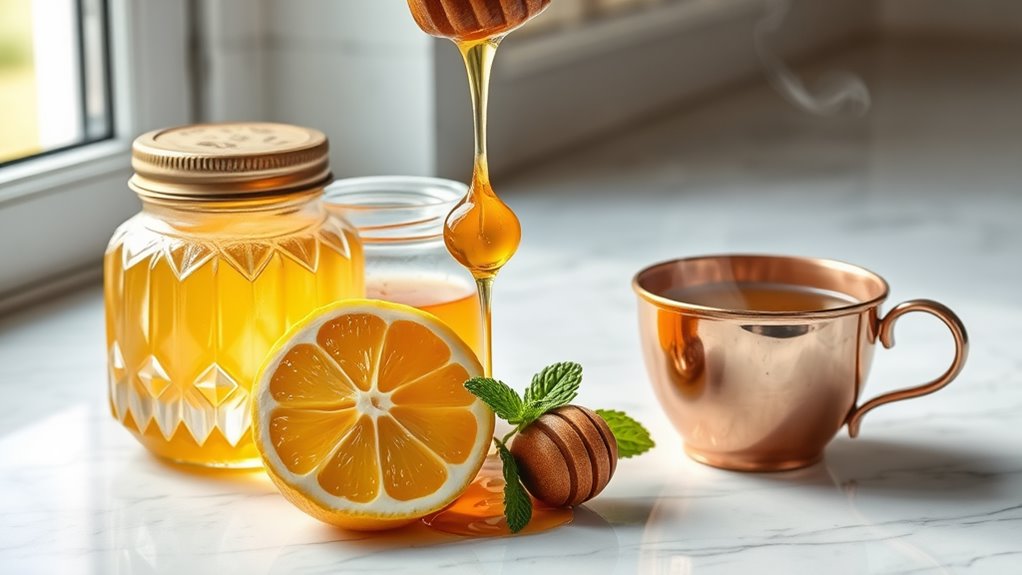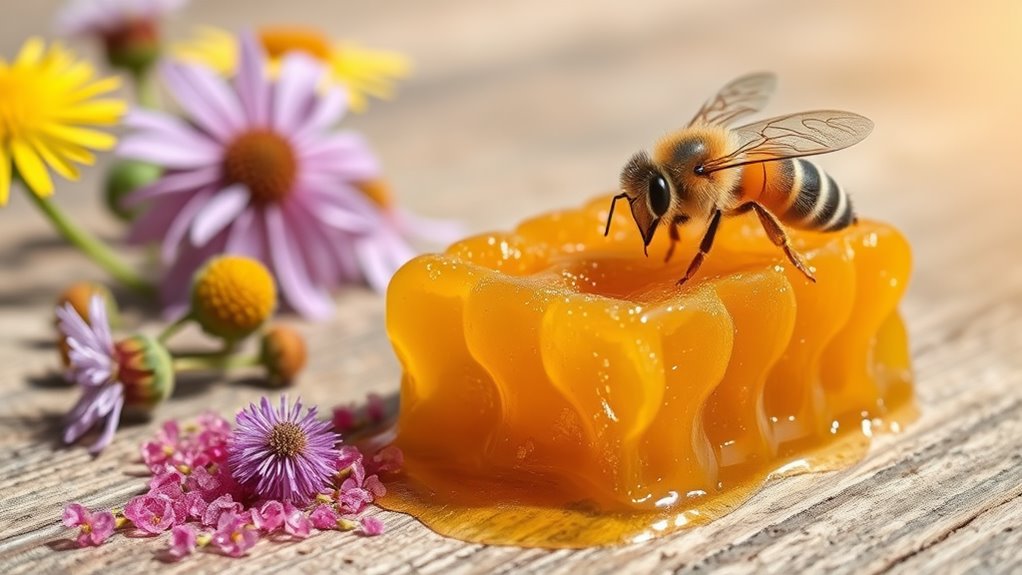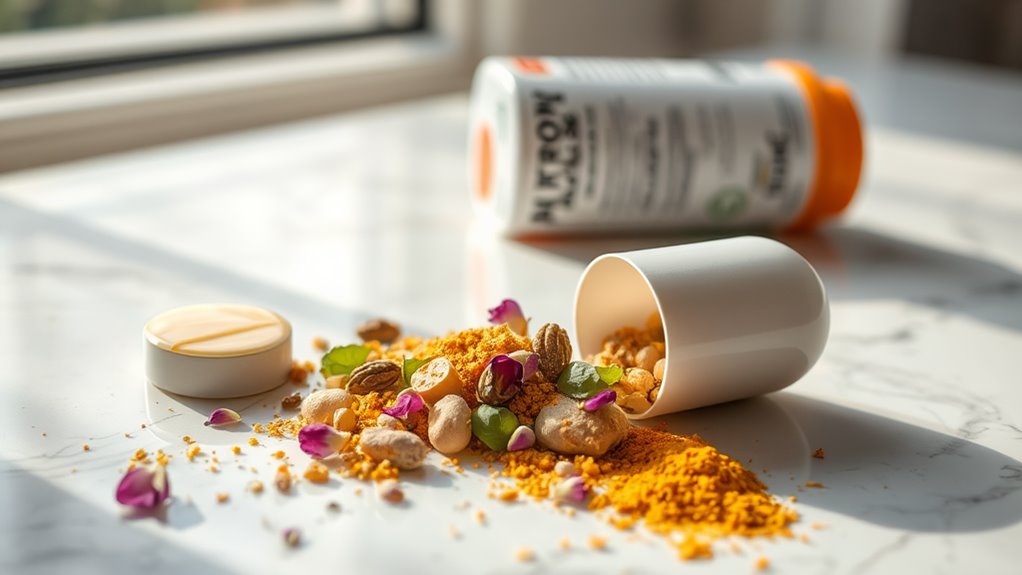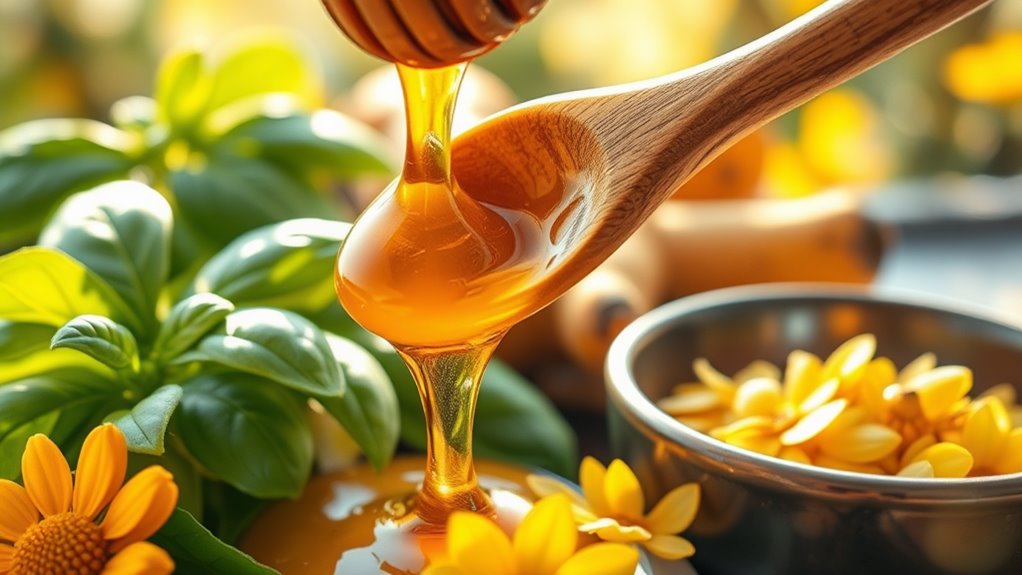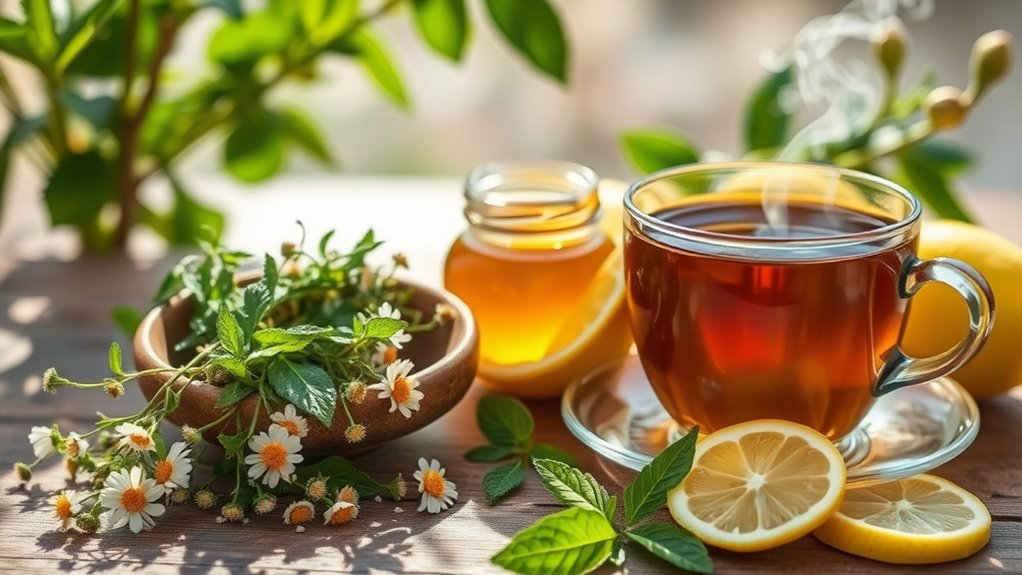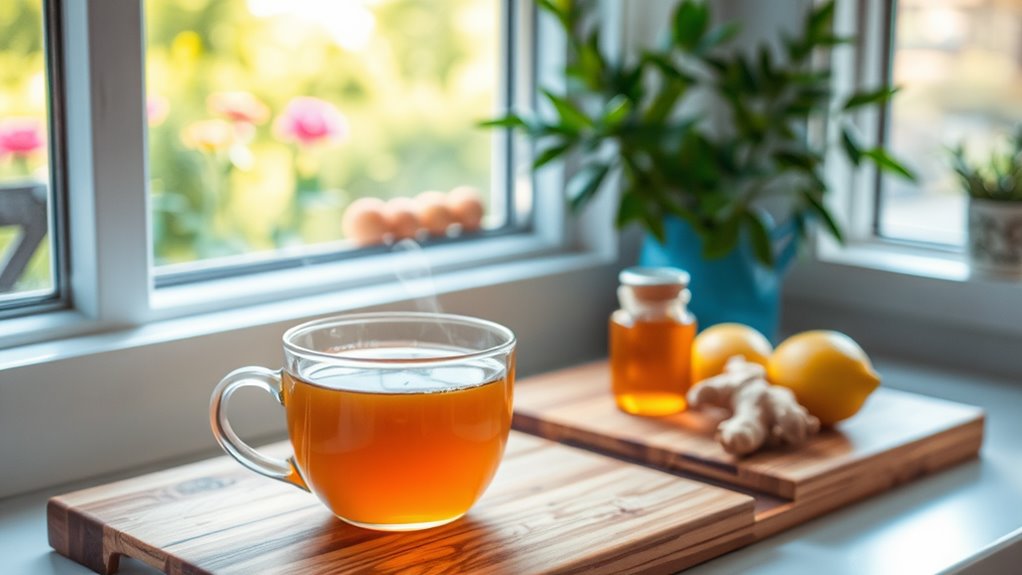Try These Remedies Before Reaching for Allergy Meds
Before reaching for allergy medications, you might want to try some natural remedies. Local honey can help build tolerance to pollen, while saline nasal irrigation effectively clears allergens from your nasal passages. Butterbur supplements may block histamine without sedation, and herbal infusions, like stinging nettle and ginger, can reduce inflammation. Additionally, combining quercetin and vitamin C helps regulate immune responses. Explore these options to find relief while discovering more ways to manage your symptoms effectively.
Local Honey Desensitization
Local honey is often touted as a natural remedy for allergy relief, drawing interest from those suffering from seasonal symptoms. The idea behind using local honey is akin to allergy immunotherapy, where small pollen exposures may help your body build tolerance. However, there’s limited scientific evidence supporting its effectiveness. Honey might suppress allergic reactions by inhibiting mast cell activation, but this is mostly backed by animal studies. Additionally, tree pollen from species like maple and elm can be particularly prevalent in March. The variable pollen content in honey complicates consistent results. While local honey can complement traditional treatments, it shouldn’t replace proven therapies. Pollen allergies involve allergens from trees, grasses, and weeds, explore it as one of many natural healing remedies for allergy support.
Saline Nasal Irrigation
Many people looking for natural methods to alleviate allergy symptoms may find saline nasal irrigation a valuable option. This technique effectively reduces symptoms for up to eight weeks by cleansing your nasal cavities of mucus and allergens. It enhances mucociliary function, helping relieve congestion and maintain hydration in your nasal passages. Saline nasal irrigation is a technique that uses a saline mix of water and sodium chloride, which can be easily prepared without preservatives. Using simple devices like neti pots, you can easily prepare a saline solution without preservatives.
Regular use is generally safe and well-tolerated, making it a convenient complement to other treatments. Just remember to keep your equipment clean to ensure optimal results and avoid irritations.
Butterbur Supplementation
Butterbur supplementation presents a promising approach for those seeking relief from seasonal allergies, especially hay fever. This herbal remedy may help block inflammatory chemicals like histamines, offering effects comparable to the antihistamine cetirizine without sedation. Recent research indicates that butterbur can effectively suppress allergic reactions like those experienced with pollen exposure. Additionally, it has been proven effective in reducing symptoms as effectively as conventional medications. When choosing butterbur, ensure you select PA-free products for safety, as those containing pyrrolizidine alkaloids can harm the liver. Taking butterbur in tablet or softgel form, typically three to four times daily, could provide significant relief. While side effects like digestive issues and fatigue may occur, this plant-based alternative can serve as a beneficial option for managing your allergy symptoms effectively.
Herbal Infusions
For those seeking additional avenues to manage allergy symptoms, herbal infusions can be a powerful ally. These teas not only alleviate discomfort but also support your body’s immune response. Here are some key options:
| Herb | Benefits | Preparation |
|---|---|---|
| Stinging Nettle | Reduces histamine release | Steep 1 tbsp in boiling water for 10 mins |
| Peppermint | Eases congestion | Infuse fresh leaves for 5-10 mins |
| Ginger | Targets inflammation | Grate 1-inch piece, simmer for 15 mins |
Incorporating these infusions can enhance your allergy relief while providing a comforting experience. Notably, stinging nettle is known for its ability to reduce allergy-related inflammation without pharmaceutical side effects. Additionally, these herbal options may work synergistically with natural antihistamines to further promote relief from allergy symptoms.
Quercetin and Vitamin C
Quercetin and vitamin C serve as effective allies in managing allergy symptoms, each offering unique benefits that complement one another. Quercetin acts as an immunomodulator, suppressing eosinophilic inflammation and reducing histamine levels, while vitamin C enhances your immune response and decreases oxidative stress. Together, these compounds lower allergic mediators like IgE and modulate immune cell functions, leading to improved symptoms of allergic rhinitis and respiratory issues. Clinical studies show that their combination can enhance absorption and effectiveness, further stabilizing mast cells to prevent allergic reactions. Regular supplementation may help you find relief from pesky allergy symptoms more effectively. Additionally, quercetin is a potent flavonoid known for its antioxidant and anti-allergic properties, making it a valuable component of allergy management. Furthermore, incorporating a diet rich in vitamin C can significantly contribute to lowering histamine levels in the body.


